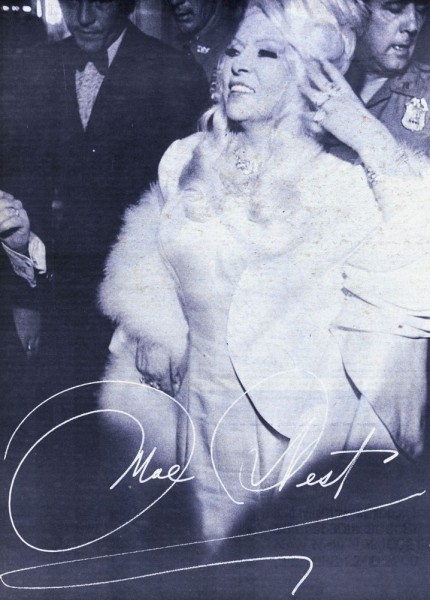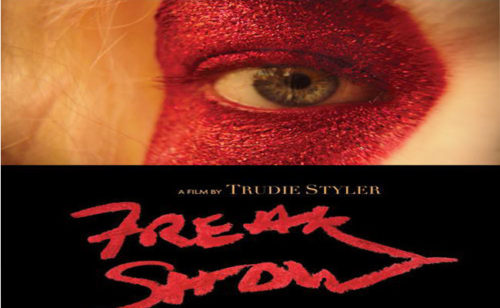From TalkinBroadway.com
by Rob Lester
Sound Advice
Tributes – One Singer Salutes Another
BETTE MIDLER
SINGS THE PEGGY LEE SONGBOOK
Columbia Records
(A BaltoBoy Scan)
This album is a dream come true. Before you accuse me of hyperbole, allow me to explain. Bette Midler got a phone call from the man who was her pianist, musical director and opening act in the beginning of her career. He said he’d had a dream that Bette recorded (with him) the songs of the great singer, Rosemary Clooney. They went ahead and did it. A success and strong seller! Lucky for us all, he had another dream about recording a Peggy Lee tribute album. It’s another reunion and another prize.
With the odd credit of “all song layouts created by Barry Manilow” and produced by him (other arrangers are credited on individual songs), this album is filled with musical merriment and class. The sound is bright and the band goes to town. This is a barrel of fun with a couple of ballads to add variety to the mainly upbeat, rhythmic feel-good festival (“Alright, Okay, You Win” is a prime, good-time example). Less restrained than Peggy Lee, Bette is loose on the uptempo numbers. However, she shows little hint of her outrageous or bawdy side.
The Broadway songs include the wide-eyed lovestruck title tune from 1956’s Mr. Wonderful and a perky “Big Spender” from Sweet Charity which, frankly, I wish had a bit of the brassier Bette. The final theater number, “Happiness Is a Thing Called Joe” from Cabin in the Sky, is a revelation. Warmly arranged and conducted by Bill Ross, it’s one of the best versions of the standard I’ve heard. Bette really finds a homespun authenticity in her reading of the lyric of contentment and commitment: “Sometimes the cabin’s gloomy and the table’s bare./ But then he’ll kiss me and it’s Christmas everywhere.” It’s like a warm, cozy blanket wrapped around the listener. The movie song, “The Folks Who Live on the Hill,” is one of the most idyllic tales ever. It finds Bette in another Bill Ross dream, at her storytelling emotive best with Jerome Kern’s majestic melody and Oscar Hammerstein’s story of a devoted couple living happily ever after in their own kind of cabin (not in the sky).
Two pop hits for Peggy Lee written by Jerry Leiber and Mike Stoller are as different as can be. “I’m a Woman (W-O-M-A-N)” is a confident and brash smash. (It was also used in the songwriters’ Broadway revue, Smokey Joe’s Cafe.) The signature tune, “Is That All There Is?” takes full advantage of Bette’s acting skills with its spoken sections between choruses. Don Sebesky’s arrangement is credited as being based on the original by Randy Newman, but Bette’s speeches have all her own acting choices, emphasizing different words and creating her own character. The mini-tales of disillusionment are taken seriously and she really breathes new life into the song, in the end making it less devastating and more the story of a survivor.
More fun is had with two songs Peggy Lee co-wrote. One is “He’s a Tramp” from the Disney film Lady and the Tramp and here Bette comes closest to a Peggy Lee sound and style. The other is the happy “I Love Being Here with You,” a duet with Manilow that has some cute banter. There’s one song I haven’t commented on because I haven’t heard it: My preview copy is the standard issue, but there’s an extra track on a version of this album sold exclusively at Barnes & Noble. That song is “He Needs Me,” a fine song Peggy Lee performed in the film Pete Kelly’s Blues. If you have a computer or DVD player, you may be able to access the visual component of the album showing videos of the same material. I’m a longtime Bette Midler fan, but I have found some of her albums to be wildly uneven. This one is even – and even better than most.
It can be a dangerous game, this idea of one singer taking on the legacy of a beloved entertainer. Stay too close to the original and risk being accused of being a copycat who is a pale imitation. Go the route of reinventing and rethinking the material and one may be accused of blasphemy. Nevertheless, sometimes it works, and the affection one singer has for an idol really comes through.







